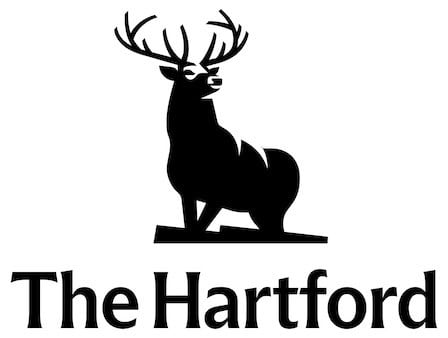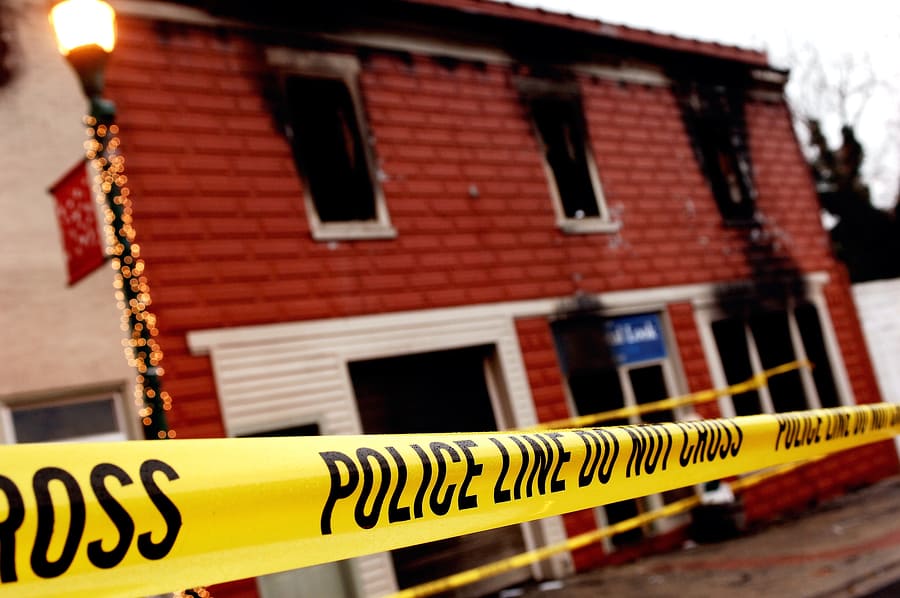
Get Business Insurance Starting At $21/Month
Obtain affordable coverage quickly and easily with The Hartford for business insurance. Just answer a few basic questions about your business to get started, and they'll do the rest.
Get Covered💳 Save money on credit card processing with one of our top 5 picks for 2025
What is commercial property insurance, what damage does it cover, and do you need it? Read our guide to find out!

Commercial property insurance protects businesses from accidents, theft, fire, and other disasters. If you have a physical store, office, warehouse, or equipment, commercial property insurance should be part of your business plan.
Table of Contents
Commercial property insurance is coverage that protects your business assets and property. It’s one of the most important types of insurance policies that all businesses should consider purchasing.
Commercial property insurance is available from all the best insurance companies. It’s often bundled with another type of key coverage, general liability insurance. These two types of essential coverage are often sold together as a business owners policy or BOP.
Commercial property policies typically provide compensation for damage to buildings as well as damage done to fixtures, inventory, and property inside the building.
Almost every business with a physical location should have a commercial property insurance policy to protect their business assets. Your commercial property policy will protect your building and almost everything inside it, including your inventory, equipment, furniture, fixtures, electronics, and more.
If you rent, rather than own, your business space, you still can protect your business property with a slightly different type of coverage. The best business renter’s insurance policies offer excellent coverage at a reduced cost. Your landlord may require you to show proof of insurance.
Commercial property insurance protects your business’s long-term financial health. It’s your responsibility to make sure your most important assets are included in the policy’s coverage.
Policies are often specific in what is covered and what is. To have a valid claim, the incident that triggered the claim mustn’t be excluded in the fine print of your contract. Damage from fires, for example, is typically covered, while flood damage is not.
However, even if your commercial property policy includes protection from fire damages, the policy may make distinctions between a natural fire, an electrical fire, a fire caused by the mishandling of volatile chemicals, and so on. Ask your insurance agent or broker to walk you through the clauses of your policy so you understand what possible scenarios wouldn’t be covered by your policy.
Should your business and property sustain physical damages within the conditions that are covered according to your commercial property insurance contract, you’ll be compensated for the costs that go into either fixing or replacing what you claim. When you file a claim, you can choose to receive the cash value of the destroyed items or the replacement value (how much it would cost to replace new).
Read on to see what is and isn’t typically covered by commercial insurance policies.
Again, be certain to verify your own coverage.
In general, commercial property policies will cover accidents, theft, and damages to your building and the business assets inside your building. In most cases, commercial property insurance policies will cover damages from the following:
Most commercial property insurance policies don’t cover:
It’s also important to note that commercial property insurance will only cover your property. If a customer or vendor’s property is damaged while they’re on your premises due to one of the causes listed above, this insurance won’t cover the costs of their property. You’ll need third-party liability insurance for that.
Sometimes coverage depends on how the damage occurred. For example, if a toilet backs up and sewage damages your property, it isn’t covered. But if that same toilet backs up because of vandalism, that is covered.
Since coverage can vary, it’s important to learn exactly what is and isn’t covered by your own policy.
Inland marine insurance is the most misunderstood type of business insurance coverage. If your business has nothing to do with water, you may think you don’t need inland marine coverage. You may want to rethink that.
A very quick history lesson will explain why: Inland marine insurance originally protected cargo that had been shipped by sea as it was transported over land. These days, inland marine insurance protects your business property whenever it’s in transit by truck or train or stored somewhere away from your business property.
Keep in mind that most commercial property insurance policies cover your building and its contents.
If you routinely use or store property away from your primary business location, if you store high-value equipment or tools in a commercial vehicle that travels frequently, or if you ship high-value property, an inland marine insurance policy can extend your coverage. Inland marine insurance can also provide protection for another person’s property that is stored at your business location.
Businesses in industries like the following often use inland marine insurance:
Ask your insurance agent if your business is a good candidate for inland marine insurance.
The cost of commercial property insurance will be different for every business. Insurance companies typically provide personal price quotes that take into account your business type, size, number of employees, location, and other factors.
Small businesses can expect to pay annual premiums of around $1,000 to $3,000 on average for a commercial property insurance plan. Insureon researched the market’s rates in 2022 and found that the median cost for commercial property insurance with a $60,000 limit and a $1,000 deductible came out to $63 a month — only $755 a year.
Ultimately, the cost of business insurance is going to depend on factors such as:
If you live in an area that’s prone to natural disasters or have equipment that’s expensive to replace, your premium is going to reflect those financial risks.
Once you’ve decided to invest in commercial property insurance, you’ll now need to decide what type of coverage is best suited for your business and make a list of assets you’d like to protect. Once you’ve determined this, you’ll want to look into the best commercial property insurance available.
If you’re starting the process, you might find it helpful to learn more about the steps needed to buy insurance.
Here’s a summary:
The two most important types of business insurance are commercial property and general liability coverage. Many insurance companies bundle these policies together and offer what’s called a business owners policy, or BOP, at a discounted price.
A business owners policy (BOP) is a bundled policy that often includes both commercial property and general liability insurance. Some BOPs bundle slightly different policies. You add extra insurance coverage that exceeds the basic coverage of a commercial property policy. And if you have employees, a BOP can also negotiate worker’s compensation insurance into the bundle.
BOPs most commonly combine general liability insurance and commercial property insurance into one policy bundle.
Some BOPs also include business interruption insurance or additional coverage against theft through crime insurance. Your BOP can be tailored to fit your business needs.
| Type of Insurance | What It Covers | Who It Is For |
|---|---|---|
General Liability | Protects your business from the threat of a lawsuit | All businesses |
Property Insurance | Protects your building and things inside your buildings from damage and accidents | Businesses with a physical property site and products located in those physical locations |
Business Interruption | Provides resources if your business is forced to stop or relocate | Businesses located in riskier areas and businesses who might work with vendors in risky areas |
Commercial Auto Insurance | Provides protection from accidents on your commercial vehicles | Businesses that rely on automobiles to do business |
Workers Compensation | Provides protection to you and your employees should they become injured on the job | All businesses |
Professional Liability (E&O) | Protects your business during a lawsuit if your business commits errors or malpractices | Any business that provides a service |
Product Liability Insurance | Protects a business from a lawsuit related specifically to the product it sells | Any business that manufactures, sells, or distributes a product |
Home-Based Business Insurance | Protects any business-related items inside your home not covered by home owner's insurance | Any business owners running out of their own homes |
Business Owners Policy | Includes both general liability and commercial property insurance | All businesses |
Umbrella Insurance | Provides a bigger ceiling for the legal costs of a lawsuit that extends your liability coverage | All businesses |
When you start shopping for commercial property coverage, you’ll want to know what you can add to your policy to make sure it is the best fit for your business. Most commercial property policies don’t cover earthquake damage or flooding. Are you in an area where the fault lines aren’t predictable? You’ll want extra coverage. Is your business’s location prone to flooding? You’ll want to add flood insurance.
It’s important to ask about additional policies to cover the following possible situations if they’re risks for your area/business type:
Whether you are buying a commercial property policy separately or as part of a business owner’s policy, knowing which types of insurance are available will help you make the most informed decision for your business. Here are some policies you can add to your general liability policy.
Want to help shape the future of the Merchant Maverick website? Join our testing and survey community!
By providing feedback on how we can improve, you can earn gift cards and get early access to new features.
 Experience competitive rates, excellent customer support, and a fast & easy claim process. Request a free analysis today.
Get Started
Experience competitive rates, excellent customer support, and a fast & easy claim process. Request a free analysis today.
Get Started
Help us to improve by providing some feedback on your experience today.
The vendors that appear on this list were chosen by subject matter experts on the basis of product quality, wide usage and availability, and positive reputation.
Merchant Maverick’s ratings are editorial in nature, and are not aggregated from user reviews. Each staff reviewer at Merchant Maverick is a subject matter expert with experience researching, testing, and evaluating small business software and services. The rating of this company or service is based on the author’s expert opinion and analysis of the product, and assessed and seconded by another subject matter expert on staff before publication. Merchant Maverick’s ratings are not influenced by affiliate partnerships.
Our unbiased reviews and content are supported in part by affiliate partnerships, and we adhere to strict guidelines to preserve editorial integrity. The editorial content on this page is not provided by any of the companies mentioned and has not been reviewed, approved or otherwise endorsed by any of these entities. Opinions expressed here are author’s alone.
 Experience competitive rates, excellent customer support, and a fast & easy claim process. Request a free analysis today.
Get Started
Experience competitive rates, excellent customer support, and a fast & easy claim process. Request a free analysis today.
Get Started